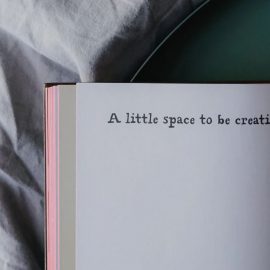

This article is an excerpt from the Shortform book guide to "Hidden Potential" by Adam Grant. Shortform has the world's best summaries and analyses of books you should be reading.
Like this article? Sign up for a free trial here.
Why is guidance important to reach your goals? How can you ask for guidance from someone who’s been in your position?
Adam Grant notes that your ability to teach yourself has limits. Often, you’ll need guidance from others, especially if you’re trying to learn to do something complex where “success” is subjective, like composing a symphony or starting a political career.
Check out how to ask for guidance from someone you trust.
The Power of Guidance
To ask for guidance from someone who will actually help you, choose your guides carefully. Find someone who knows what they’re talking about, is familiar enough with you and your work to give an accurate assessment, and truly wants you to succeed. Otherwise, you could end up with bad advice, advice that doesn’t fit you, or advice that isn’t intended to be helpful.
(Shortform note: Those who give unwise, unsuitable, or malicious advice may be particularly dangerous for people with codependent tendencies. In Codependent No More, Melody Beattie explains that people who are prone to codependency (that is, people who become obsessed with those around them and lose touch with themselves) consistently fail to trust their own judgment. As a result, they often fall into the trap of blindly trusting others to make decisions for them. If you have codependent tendencies, it’s especially important to second-guess those who tell you they know what’s good for you. Additionally, learn to trust yourself by reflecting on times in your life when you made good decisions.)
How to Ask for Guidance
The way you solicit advice matters, too, writes Grant. Don’t just ask people for general critiques. Most will either give you vague praise to spare your feelings or crush your spirit by bluntly telling you everything they dislike about your work. Instead, ask them to tell you what, specifically, you can do better. This simple request will focus the advice you receive into constructive feedback you can use to improve.
(Shortform note: In The Motivation Myth, Jeff Haden argues that you don’t necessarily need to directly talk to a mentor to learn from them the specific things you need to do better. Rather, simply studying their life and emulating them can help you achieve goals that are similar to theirs. For instance, if you want to follow in the footsteps of your favorite science fiction author, you can research their writing process and mimic it. This strategy also removes the risk of receiving unhelpful praise or demoralizing criticism from real-life mentors.)
Not All Guidance Applies to You
Even when you find a guide you can trust, you can’t just follow their instructions blindly. Grant explains that everyone is different, so when an expert offers advice that worked for them, it might not work for you. For example, an early riser sharing productivity tips may advise you to wake up at the break of dawn to work without distractions. But if you’re a night owl, waking up early might drain your energy, hindering your productivity rather than boosting it.
To solve this problem, gather advice from multiple experts, then experiment until you discover which of their tips work for you.
(Shortform note: In Tribe of Mentors, Tim Ferriss shares advice from philanthropist John Arnold, who also warns against blindly following advice from experts. Arnold takes this idea further, arguing that experts often find success using strategies that are exact opposites. For instance, some entrepreneurs succeed by tinkering with a single idea for years, while others succeed by giving up on many ideas and experimenting wildly until they find success. For this reason, Arnold believes that generally, advice isn’t very valuable. With this in mind, instead of spending the effort to gather advice from a wide range of experts, you might consider skipping this step and experimenting until you discover your own guiding philosophy.)

———End of Preview———
Like what you just read? Read the rest of the world's best book summary and analysis of Adam Grant's "Hidden Potential" at Shortform.
Here's what you'll find in our full Hidden Potential summary:
- Why you should practice skills in a way that’s both fun and uncomfortable
- Three ways to tap into your potential by connecting with the right people
- What organizations can do to achieve more on a larger scale






